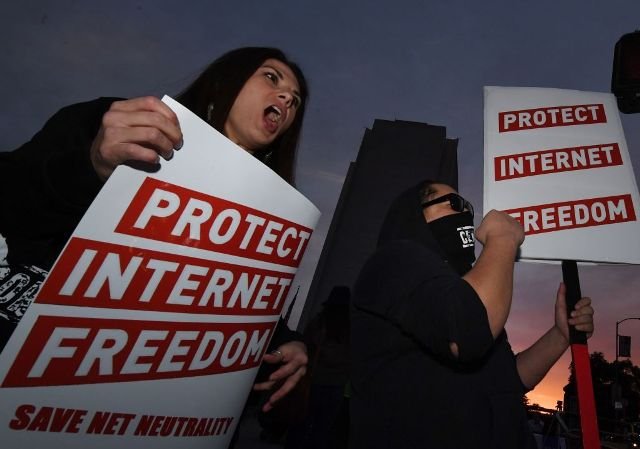Net neutrality is the principle that governments have put in place directing Internet Service Providers (ISP) to treat all internet traffic the same. The principle prevented the ISPs from slowing down connections to certain sites, apps or websites. This way, the ISPs were stopped from favoring specific sites and blocking others.

Due to the recent decision of the Federal Communications Commission (FCC) which resulted in the repealing net neutrality, ISPs will now have control of internet usage. This has raised a lot of complaints from organizations since there are severe problems that come about from repealing net neutrality.
DDoS Attacks should not be a Reason for Revoking Net Neutrality
Distributed-denial-of-service (DDoS) attacks happen when hackers install malware to computers such that the websites or applications are not available to internet users. The DDoS attacks happen because it is hard for the hackers to point out the servers that they are targeting.
The FCC experts claimed that cancelling net neutrality would decrease DDoS attacks. This is not entirely the case since the security of your web information is at risk after repealing net neutrality. Repealing net neutrality will only narrow down the targeted servers and this will increase cybersecurity threats.
Cyber Security Dangers
There are numerous negatives that come about with revoking net neutrality. One of them is that it poses a danger to cybersecurity in the following ways:
Exposure to Privacy
As an online business person, it is likely that you have purchased products that can secure your internet activities from malicious people. It is not always an easy thing and most time you have to constantly stay alert.
Repealing net neutrality might make it even harder to secure your online information. The security measures that you have put in place can become ineffective since your online activities are dependent on the control from ISPs.
Encryption is Impossible
Since the ISPs have the power to alter all traffic that passes in their equipment, this means that they will have to decrypt and re-encrypt data. This not only discloses sensitive information but it also affects the security of your encryptions. Weak security encryptions are one of the factors that result in the exposure of your internet browsing to hackers.
Additionally, as an IT security manager, you will be required to pay to connect through a VPN system. The ability of ISPs to decrypt traffic will greatly affect the confidentiality of your information.
Annoying Advertisements
Isn’t it enough that the existing ads that pop up when browsing is annoying already? ISPs don’t think so. As a result of revoking net neutrality, ISPs can be able to place additional ads that can be viewed by internet users.
Hackers can greatly use the additional ads to manipulate people to send their login information. They can also set up malware on your computer without your knowledge.
Spyware is a Threat to Sensitive Information
Internet Service Providers will need to install spyware on devices to be able to record your internet browsing. Basically, the ISPs need to learn about your internet searches for purposes of advertisements.
Unfortunately, the spyware will have access to your sensitive information too and that information can be submitted to third parties without noting that the information is private. Hackers can take advantage of the vulnerabilities in the spyware and intercept your private details such as passwords. This is a great concern when malicious people access everything on your devices including your bank information.
Conclusion
The negativity associated with repealing net neutrality does not stop there. The ISPs can slow down or block content from sites that disagree with them. They could also introduce new rates to companies that need special treatment. Cable and phone ISPs can greatly impact the success of certain sites and applications. Generally, the open internet could be a thing of the past.
Net neutrality encourages privacy and safety of information. Open internet protects people’s rights and promotes equality. Repealing net neutrality only favors particular business persons, who can;
# Pay for priorities in the internet speed
# Purchase access to various services
# Produce content that appeals to the ISPs
In the case of small business people, they might be less disadvantaged since they may lack the resources to pay for privileges from Internet Service Providers.
Ken Lynch, founder of ReciprocityLabs.com
Ken Lynch is an enterprise software startup veteran, who has been fascinated about what drives workers to work and how to make work more engaging. Ken founded Reciprocity to pursue just that. He has propelled Reciprocity’s success with this mission-based goal of engaging employees with the governance, risk, and compliance goals of their company in order to create more socially minded corporate citizens. Ken earned his BS in Computer Science and Electrical Engineering from MIT.





